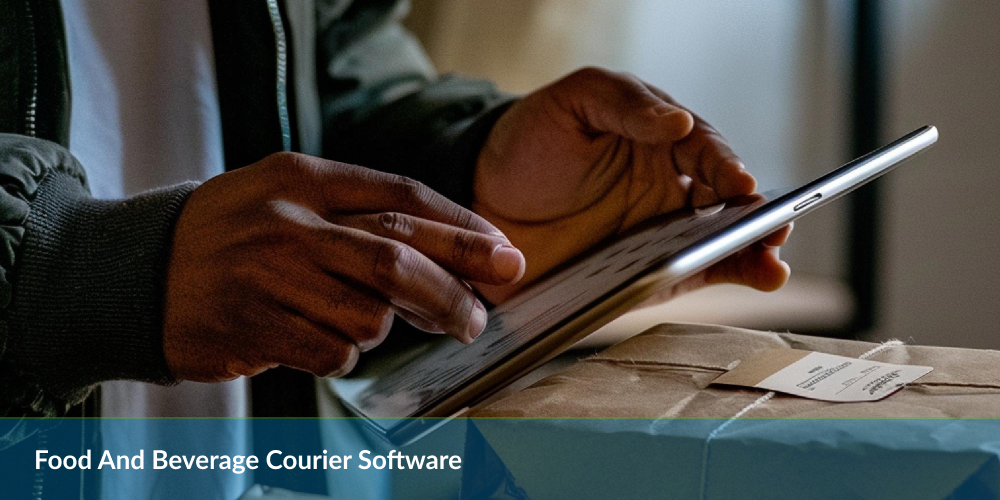Table of Contents
The COVID-19 pandemic has accelerated the shift towards e-commerce and home deliveries, leading to a greater demand for sustainable delivery options. As a result, green delivery services have become a crucial part of the logistics industry, with a projection of crossing the $1.7 billion mark by 2028. This shift not only addresses environmental concerns but also aligns with consumer preferences for eco-friendly services.
Going with the trend, e-commerce giant Amazon has also pledged to make all of its deliveries carbon-neutral by 2040 and has ordered 100,000 electric delivery vans from Rivian. With companies committing exponentially towards sustainable delivery practices, the trend is seen as a key strategy for businesses to reduce their environmental impact and improve their brand image.
The movement towards sustainable delivery involves various aspects such as service innovation, ownership of environmentally friendly fleets, and adherence to regulatory standards aimed at reducing carbon emissions. This holistic approach ensures that businesses can meet consumer demands while contributing positively to the environment.
In this blog, let’s understand green delivery services in detail and discuss why it’s the right time for your business to make the switch.
What are Green Delivery Services
Green delivery services refer to delivery services that prioritize environmentally sustainable practices, such as reducing carbon emissions, using eco-friendly packaging materials, and optimizing delivery routes.
The delivery industry is already a major contributor to greenhouse gas emissions and air pollution, and as such, there is a growing need for eco-friendly delivery services and practices.
By using electric or hybrid vehicles, to reduce greenhouse gas emissions and employing technologies like route optimization, geo-tagging, and accurate data analytics, a delivery business can significantly decrease its carbon footprint and achieve sustainability.
Now that we have figured out the concept of green delivery services, let’s have a look at some of the crucial advantages it brings to your business.
Benefits of Green Delivery Services
Green delivery services refer to delivery services that prioritize environmentally sustainable practices, such as reducing carbon emissions, using eco-friendly packaging materials, and optimizing delivery routes.
As a result, businesses are recognizing the need to reduce their carbon footprint and promote sustainable practices in order to meet the expectations of environmentally-conscious consumers.
The delivery industry is already a major contributor to greenhouse gas emissions and air pollution, and as such, there is a growing need for eco-friendly delivery services and practices. By using electric or hybrid vehicles to reduce greenhouse gas emissions and employing technologies like route optimization, geo-tagging, and accurate data analytics, a delivery business can significantly decrease its carbon footprint and achieve sustainability.
Here are some key benefits of adopting a green supply chain policy:
- Regulatory Compliance: Adhering to environmental regulations and laws is essential for avoiding penalties and maintaining operational licenses. Implementing green delivery practices ensures your business stays compliant with current and future environmental regulations.
- Enhanced Reputation: Adopting sustainable practices improves your brand’s reputation among consumers who are increasingly concerned about environmental issues. This can lead to increased customer loyalty and attract eco-conscious consumers.
- Operational Efficiency: Using route optimization and accurate data analytics technologies can streamline delivery operations, reduce fuel consumption, and lower operational costs.
- Competitive Advantage: Businesses that adopt green delivery practices can differentiate themselves from competitors, offering a unique selling point that appeals to environmentally conscious customers.
- Long-term Cost Savings: While the initial investment in green technologies and practices may be higher, the long-term savings from reduced fuel consumption, lower maintenance costs of electric vehicles, and efficient delivery operations can be substantial.
- Regulation and Licensing: Compliance with environmental regulations not only avoids legal repercussions but can also facilitate easier acquisition and renewal of necessary operational licenses, ensuring smooth business operations.
- Contribution to Environmental Goals: By reducing carbon emissions and adopting sustainable practices, businesses contribute to broader environmental goals, such as reducing global warming and protecting natural resources.
- Improved Customer Experience: Implementing green delivery practices, such as timely deliveries through optimized routes and eco-friendly packaging, enhances the overall customer experience, leading to higher satisfaction and repeat business.
- Social Responsibility: Demonstrating a commitment to social responsibility by adopting green practices can attract socially conscious investors and partners, further enhancing business opportunities and growth.
- Innovation and Adaptability: Embracing green delivery services encourages a culture of innovation and adaptability within the company, fostering continuous improvement and resilience in an ever-evolving market.
Green delivery services are all about contributing to a sustainable future where business growth is achieved without creating any considerable environmental impact. In the next section, let’s discover some of the major challenges in implementing a green delivery policy.
Challenges to Implementing Green Delivery Services
Adopting a green logistics policy can be daunting if your business is not accustomed to the evolving technologies and strategies that go into efficient delivery management. Let’s understand some of the main roadblocks:
- Lack of expertise: Implementing green delivery services requires specialized knowledge in areas such as sustainable packaging, alternative fuel vehicles, and route optimization. A delivery company may lack the expertise to implement these practices effectively, making it challenging to achieve its sustainability goals.
- Lack of resources: Smaller delivery companies may not have the resources to hire specialists in areas such as geographical mapping and data analysis. Without these resources, they may struggle against their larger competitors.
- High costs: Implementing green delivery services can require a significant investment of capital, especially for small to medium-sized businesses. This may include purchasing and, installing infrastructure, and upgrading to sustainable packaging materials, which can be costly and potentially unfeasible for some companies.
- Complex logistics: Delivery companies must navigate complex logistics, including factors such as traffic patterns, delivery times, and customer preferences. Optimizing these logistics requires specialized knowledge and infrastructure that not all delivery companies may possess.
Delivery management platforms like NetworkON can help address these challenges by providing a robust platform that incorporates route optimization, geo-tagging, and data analysis tools into a single solution. Additionally, a dedicated delivery platform can provide ongoing updates and support, ensuring that delivery companies stay up to date with the latest technology and best practices.
Best Practices for Implementing Green Delivery Services
Setting up a successful strategy for green delivery services requires a holistic approach combining several best practices. Here are the five major strategies you can adopt to reduce your business’s environmental footprint.
- Creating sustainability goals: Start by creating clear and measurable sustainability goals, such as reducing fuel consumption, emissions, and delivery times.
- Optimizing delivery routes: By using delivery management software, you can optimize delivery routes based on factors such as traffic patterns, delivery locations, and delivery times. This will help your fleet reduce fuel consumption, emissions, and delivery times.
- Encouraging eco-friendly driving practices: Encourage your drivers to adopt eco-friendly driving practices, such as avoiding overspeeding, and unnecessary idling. Delivery management software can also analyze driver behavior and help you improve your fleet’s performance.
- Monitoring fuel consumption and emissions: Delivery management software like NetworkON monitors fuel consumption and emissions in real-time. This can help you identify areas where you can improve your operations and reduce your environmental impact.
- Using sustainable packaging materials: By utilizing sustainable packaging materials, such as recyclable or biodegradable materials for your deliveries, you will reduce your carbon footprint and contribute towards a sustainable future.
Now that we know which best practices to follow to ensure sustainable delivery services for your business. Learn how NetworkON – a comprehensive delivery and dispatch solution that allows you to decrease your carbon emissions, and improve your bottom line.
The NetworkON Advantage
NetworkON is an all-inclusive delivery and dispatch solution that helps companies overcome their environmental footprint and promote low-carbon delivery services. By leveraging technologies like route optimization, geo-tagging, and AI-based performance analytics, NetworkON ensures your business stays on track to achieve its sustainability goals and growth.
To know more email us at info@networkon.io or visit our website.
Frequently Asked Questions:
Q. Why are Green Delivery Services gaining prominence now?
The rise of green delivery services is attributed to the increasing global focus on sustainability and environmental responsibility, driven by growing awareness of environmental issues and heightened consumer demand for eco-friendly products and services.
Q. What challenges are associated with implementing Green Delivery Services?
Challenges include a lack of expertise in sustainable practices, limited resources for smaller companies, high implementation costs, and the complexity of logistics. Overcoming these challenges may require specialized knowledge and investment in technology.
Q. How can delivery management platforms address challenges in Green Delivery Services?
Delivery management platforms, like NetworkON, can address challenges by providing a comprehensive solution incorporating route optimization, geo-tagging, and data analysis tools. They offer ongoing updates and support to ensure companies stay updated with the latest technology and best practices.
Q. What are the best practices for implementing Green Delivery Services?
Best practices include setting clear sustainability goals, optimizing delivery routes using management software, encouraging eco-friendly driving practices, monitoring fuel consumption and emissions in real time, and using sustainable packaging materials for deliveries.
Q. How does NetworkON contribute to sustainable delivery services?
NetworkON is an all-inclusive delivery and dispatch solution that leverages technologies like route optimization and geo-tagging, promoting higher resource utilization and lesser wastage. It helps businesses overcome their environmental footprint, ensure low-carbon delivery services, and achieve sustainability goals.
Q. How can businesses learn about NetworkON and its advantages for green delivery services?
Businesses interested in NetworkON and its advantages can email info@networkon.io or visit the official website for more information on how this comprehensive delivery and dispatch solution can decrease carbon emissions and improve the bottom line.





0 Conversations